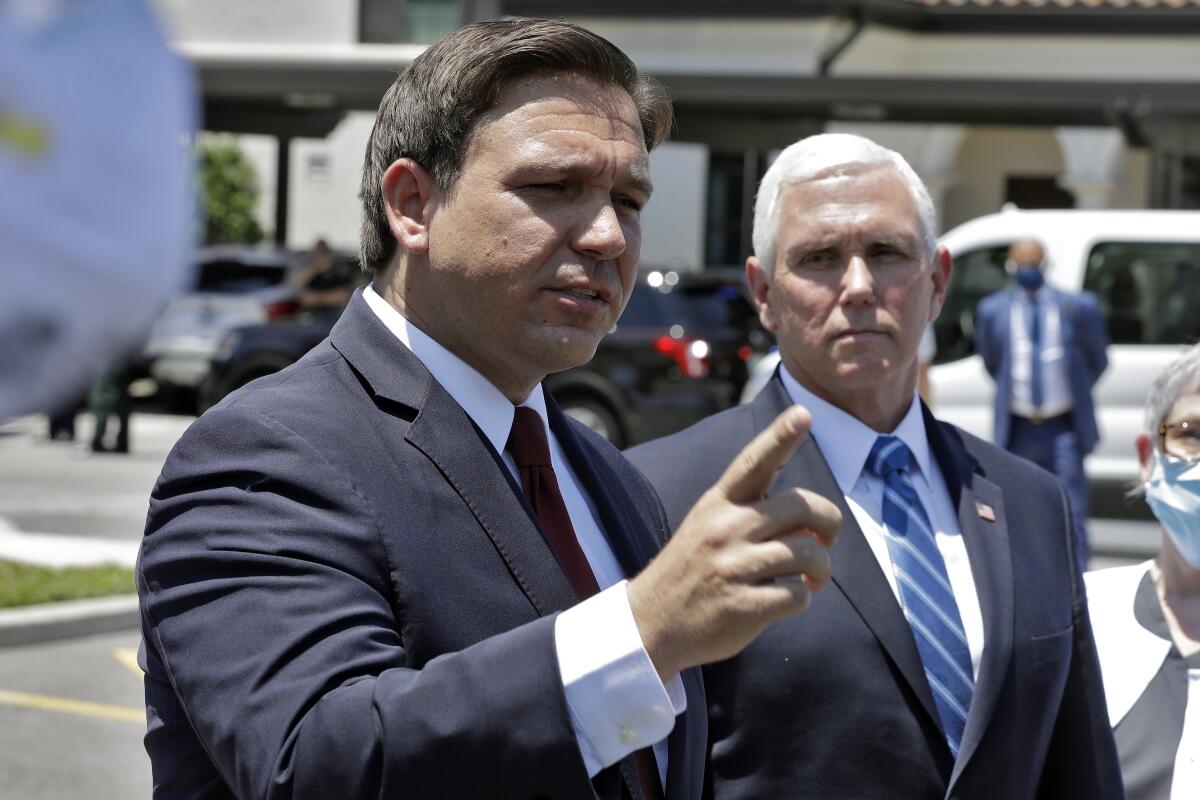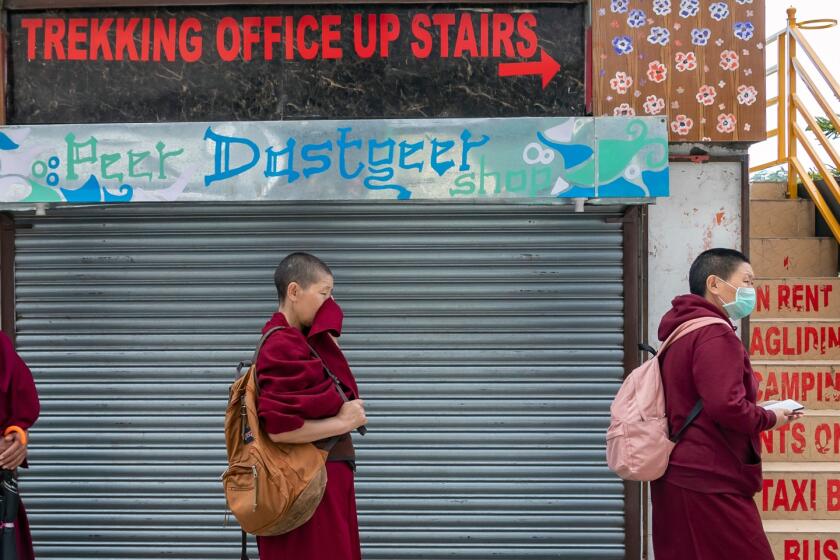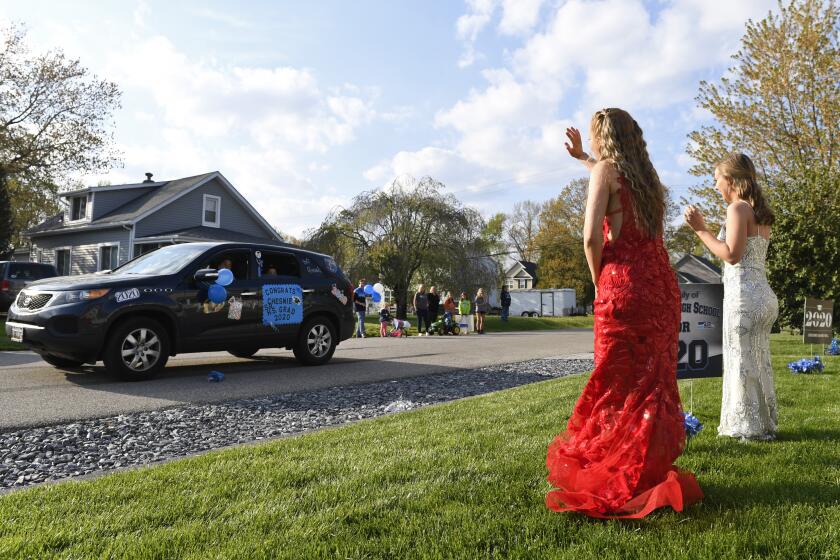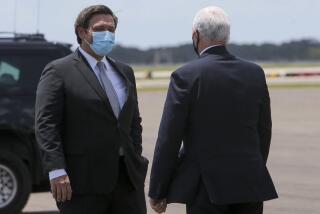As all 50 states start reopening, questions on coronavirus tracking data fuel concerns

Florida Gov. Ron DeSantis is defending his administration’s reporting of coronavirus data, after a state Department of Health manager said she was fired for refusing to manipulate COVID-19 tracking data as officials moved to reopen the state.
Rebekah Jones, who was in charge of Florida’s online COVID-19 dashboard, told West Palm Beach TV station CBS-12 that she was let go last week because she declined orders to “manually change data to drum up support for the plan to reopen.”
DeSantis, speaking alongside Vice President Mike Pence during a visit to a nursing home in Orlando, said that the website’s COVID-19 reporting of new cases and deaths is public and transparent, and that Jones was at fault for insubordination and other personnel issues.
“What she was doing was she was putting data on the portal which the scientists didn’t believe was valid data,” the Republican governor said. “She didn’t listen to the people who were her superiors. She had many people who were above her in the chain of command, so she was dismissed because of that and because of a bunch of different reasons.”
The dashboard Jones oversaw was praised last month as “extraordinary” by Dr. Deborah Birx, the White House coronavirus response coordinator. “This is what every department of health should have,” Birx said.
Florida state Rep. Tracie Davis, a Democrat from Jacksonville and a member of the state House Health Committee, questioned whether data given to the public and officials are reliable.
“We were told the reopening Florida was built on studying the data. If that data was wrong or manipulated, that puts countless Floridians at risk for exposure to COVID-19,” Davis said, according to the Associated Press.
The issue of data reporting has turned into a sensitive political issue as some Republican-led states, including Florida and Georgia, have moved aggressively to ease social-distancing restrictions and restart their economies, despite warnings by federal health officials that moving too soon could spark a new rise in coronavirus infections.
President Trump has long expressed support for fully reopening the country, and putting people back to work during the greatest jobless crisis since the Great Depression, sooner rather than later.
The Los Angeles Times will provide around-the-clock updates on COVID-19 from across Southern California and around the world.Tracking the coronavirus in California: latest numbers | Support our journalism with a subscriptionHave a question about coronavirus? Send us your questions here. | You also can sign up for our newsletterSee latest photo galleryCoronavirus updates for April 27 are here
DeSantis said that Florida hadn’t seen new cases soar since the state started reopening, and that the death rate there is lower than in other states. He noted that the heavily populated Miami area reported 69 new cases Wednesday, down significantly from a high of 500 cases per day in early April.
He slammed critiques of his reopening plans as “just typical partisan narrative.”
There have been more than 47,470 confirmed cases of COVID-19 in Florida, including 2,096 deaths, according to the latest totals released Wednesday by the state’s health department.
Local and state public health officials rely on accurate tracking of novel coronavirus cases, testing and deaths to determine when and how quickly to relax restrictions.
The office of Georgia Gov. Brian Kemp, also a Republican, was forced to apologize for its bungling of COVID-19 data collection and reporting after the Atlanta Journal-Constitution found mixed-up dates and other mistakes.
Georgia’s Department of Public Health published a graph this month that showed new coronavirus cases declining over time in severely affected counties. But the daily entries were not arranged in chronological order, but in descending order. The chart was soon taken down.
Nationwide, confirmed cases climbed past 1,551,000 on Wednesday, with more than 93,400 deaths from COVID-19, according to Johns Hopkins University, which has been tracking cases.
All 50 states have now at least partially reopened, with Connecticut becoming the last to do so on Wednesday.
A poll of over 1,000 Americans conducted by the Associated Press-NORC Center for Public Affairs Research this month found that 83% of those surveyed were at least somewhat worried that easing restrictions in their own communities might lead to new infections.
A federal judge in Texas cited similar public health concerns on Tuesday when he issued a ruling that would make all of the state’s voters eligible to cast ballots by mail because of the danger of spreading the virus at polling places. But on Wednesday, a three-judge panel at the U.S. 5th Circuit Court of Appeals in New Orleans temporarily blocked the expansion of mail-in voting in Texas, saying the court needs time to review the ruling and consider an appeal by the Texas attorney general.
Local officials in a number of other states, including Maryland and Alabama, are starting to see consequences as their restless residents venture out more and attend gatherings that are larger than what experts consider safe.
But with the loosening of restrictions in Alabama, some high schools have held graduation ceremonies that have drawn thousands of people, according to the Associated Press, with images showing graduates hugging and crowding together with no face coverings.
Our special-edition newsletter breaks down the latest coronavirus news, including the rare inflammatory disease affecting some children who test positive.
Montgomery, Ala., Mayor Steven Reed warned that intensive care units at hospitals in the state capital were “maxed out” and that some patients are being diverted to facilities in Birmingham because COVID-19 cases have skyrocketed in recent weeks.
“They’re at a capacity that’s not sustainable and that puts everyone — our neighbors, our family, our friends, our church members, our colleagues — in harm’s way,” the Democratic mayor said at a news conference Wednesday.
There have been 950 confirmed COVID-19 cases in Montgomery County as of Tuesday, including 25 deaths, Reed said.
Statewide, the number of cases surpassed 12,000 on Monday, with nearly 490 people dying from COVID-19, according to the Alabama Department of Public Health.
“We have to be honest with ourselves,” Reed said. “Although we are ready to get back to work — we’re ready to get back to enjoying our friends and our family and get back to doing the things we were doing prior to March of this year — we’re not there yet.”
The Associated Press contributed to this report.
More to Read
Sign up for Essential California
The most important California stories and recommendations in your inbox every morning.
You may occasionally receive promotional content from the Los Angeles Times.













